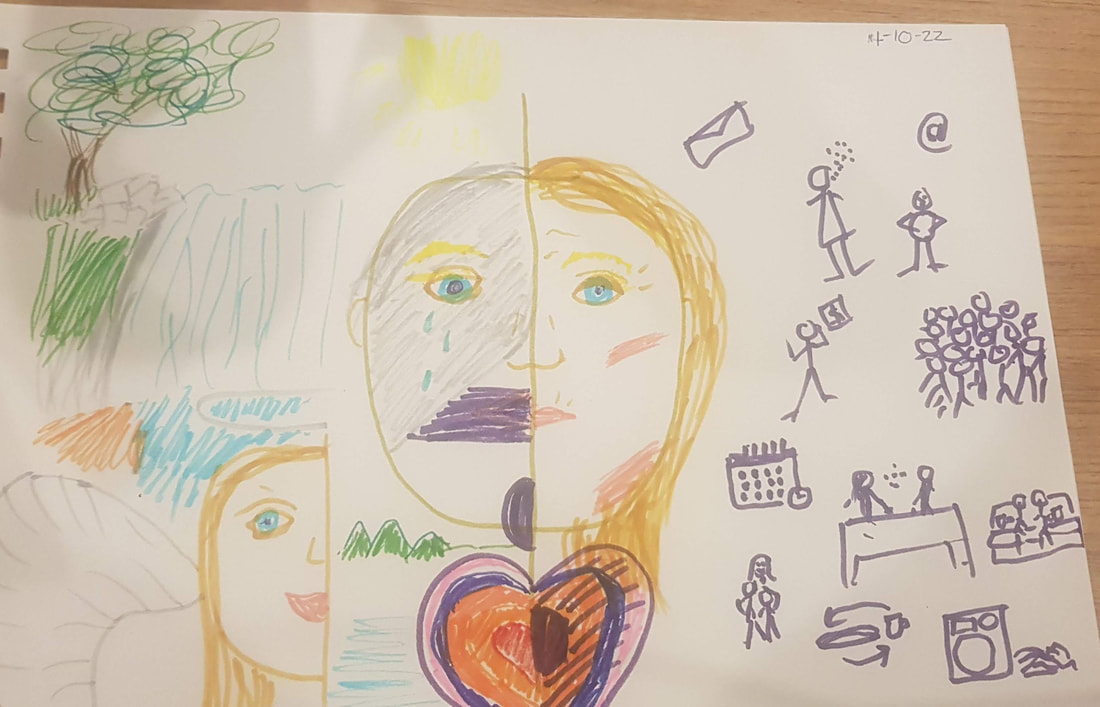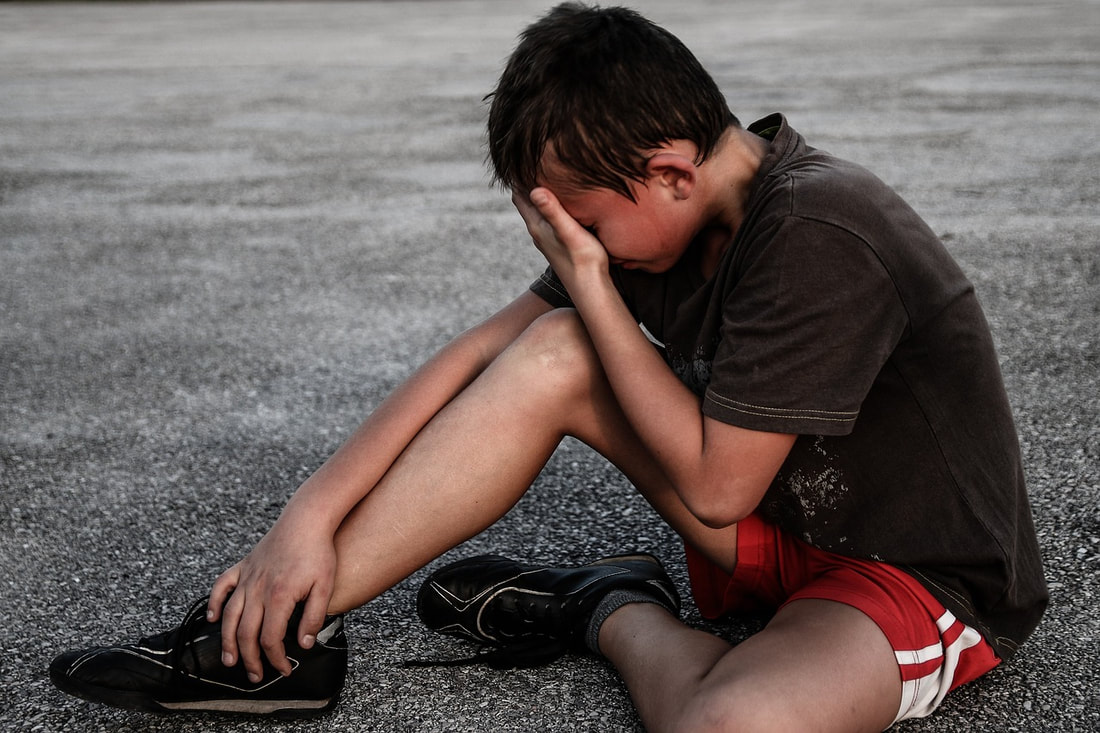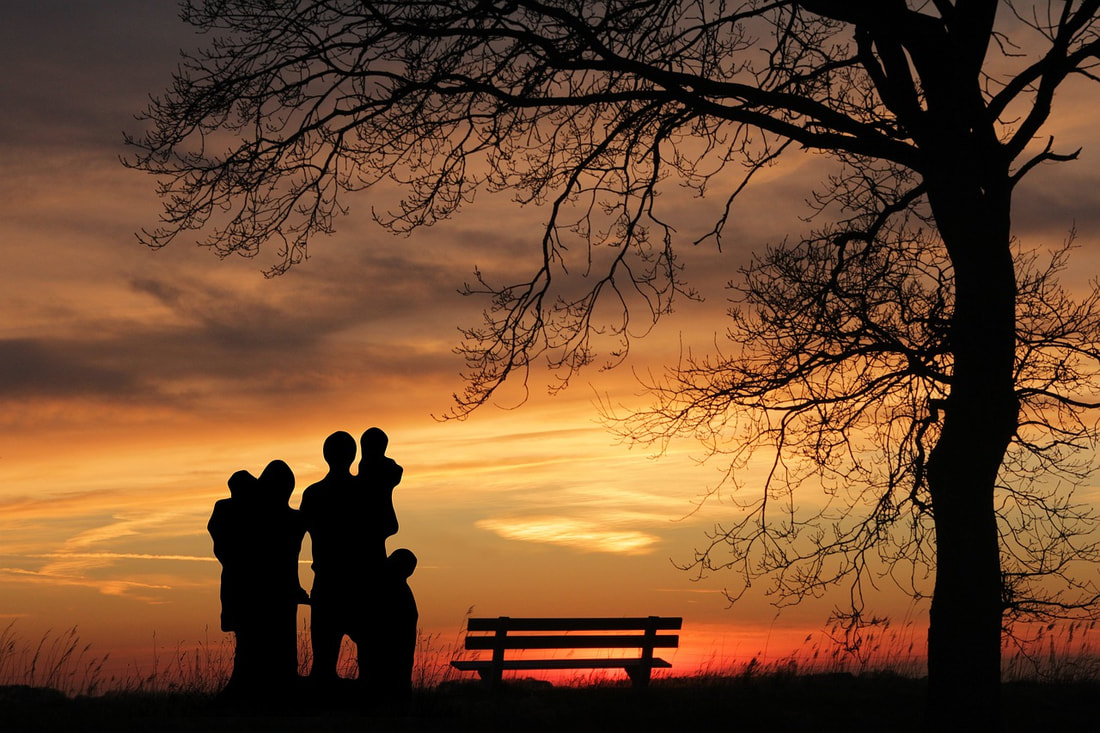|
Last weekend a good family friend came to visit and it was the first time in many years I’ve felt at ease about such a thing. Free of all the familiar feelings of having someone else look over my shoulder, disapproving of the choices made about which activities we would do, when we would be back, how much money was spent, it was bliss to just go with the flow and not worry about anything.
As another good friend of mine said “That’s normal by the way, the way it should be”. I suspect for many, like me, it hasn’t been normal at all. Without good boundaries in place, and in relationships with people who do not consider my opinions or feelings important, be that personal or professional, I’ve experienced enough of a share of the opposite to know which feels better. The contrasting good feelings of dancing to the beat of my own drum are very welcome, and they did not come about by accident. What I have learned is that passively waiting for someone else to show me courtesy, consideration or respect is fruitless, instead it is an inside out job. As I wrote about in Who Are You Protecting? Why Telling Your Story Is Powerful, while I had two parents that loved me and what I’d describe as a normal childhood, nonetheless I became hyper-attuned to others, over-sensitive to criticism, and a perfectionist, particularly under stress. It led to all sorts of pain within relationships and, upon becoming parent, I could see I needed to address some things. I had little sense of self and had to learn about having and holding healthy boundaries. Learning about who this self is, what my real needs, desires, opinions, talents, interests and so forth are has been a conscious effort. For so long my sense of self came from what was reflected back from those around me, which led to a lot of people pleasing behaviours and a massive amount of suppressing and bypassing my own true nature. My nervous system recognised this as “normal” because it’s what I subconsciously did in childhood, but normal isn’t synonymous with healthy. Now, with a good few of years of exploration, learning, help and a healthy change in circumstances, I’m starting to really feel into a whole new rhythm and way of being in the world – being me. Being me doesn’t mean I can’t be in relationships with others, it means I only choose to be in healthy relationships with others; relationships where my needs and priorities are held in equal regard to the other’s, and vice versa. Or, as Teal Swan puts it, “and” relationships rather than “or” ones, where both yours and my needs are met. I was doing an exercise earlier in the week with Briana MacWilliam, a creative arts therapist, and was asked to begin by scribbling using both hands simultaneously. As we got deeper into the exercise, what stood out for me as I was doing this was the rhythm my hands had gotten into. It felt almost like the soft swooshing of how I imagine it to be going down a gentle ski slope, or floating down a lazy river, first one way, then the other. It was a calm, gentle flow and interestingly, although I’m right handed, my left want to take the lead. It’s often said our left side represents the more feminine, intuitive and creative parts of ourselves, and certainly it felt that way, it was like an embodiment of the easeful way the weekend preceding it had felt. As Briana took me further into the exercise, I could sense it was going to be a useful and easy way for me to tap into that feeling in future. A bit like when a smell can suddenly elicit a memory, when I lock something positive like this feeling into my body, it’s far healthier than the numerous stressful experiences that I now work at soothing and integrating. I remembered a few years ago I did a Future Self meditation with Teal Swan, and I remembered the contrasting feeling within my body of a more relaxed future self compared to my then stressed comparison, where my nervous system felt constantly locked in a state of anxiety. As I reflected back on this I could see that the fruits of my focus on developing and holding healthier boundaries are starting to ripen. And that feels good. It feels easeful, joyous and liberating. Where in your life are you giving your power away and not showing up as your true self? How appealing would it be to feel more ease, more joy and more freedom in your own life? Are you ready to take the journey? If you enjoyed reading this, you may enjoy Do You Yearn for Better Outcomes? First Commit to Observing Your Reactions, Normal Is Dysfunctional That Is the Growth Opportunity, What Resentment, Frustration and Pain Have to Do With Your Boundaries, The Inevitable Pain of Returning to Love After Years of Abandoning Yourself and The People Who Hurt Us Are Vehicles for Our Growth. To be the first to receive these posts, you can also opt to subscribe to my blog.
0 Comments
When my children celebrate their birthdays, these have so far been a poignant moments for me as I revisit the memories of their birth.
Ten years ago this week, the midwife had assessed me as being in early labour and – based on my prior experience – I knew it could take a while for anything to happen. So I decided to take a short walk around the neighbourhood. “Walking” might be stretching things, it quickly became more like a slow collection of steps then a standstill as various states of contractions and breathlessness passed through me; it turned out my labour was more advanced. I asked my walking partner to slow down, “Stop whining” he said quite seriously. That right there is a break point, the break point from my perspective. Yet, duty prevailed with children in the mix, and life carried on. But I can see now that rage and resentment simmered below the surface, turned in on myself because I was too distracted, busy trying to be a patient and present mother, to do anything with someone else’s crazy behaviour other than turn it in on myself. Fast forward ten years and I have just emerged from a rather stressful separation, marked by fifteen months of nasty lawyer’s letters. There was no reasonable discussion, just paranoia and projections and an inability to hold my rights in equal regard. Now I have kidney pain, possibly the third crystallisation of all that emotional toxicity. Of course it’s not healthy to hold onto that kind of anger and resentment, and with the separation now in the rear view, the cycle has moved to grief. How could I have let this happen? What could I/should I have done differently? Then I caught up with my osteopath. She has been treating me on and off for a number of years. She knows my body and my situation very well and, for the first time in a long time, I didn’t feel compelled to dive into the details of the affronts that had landed in my inbox. I did say that everything was now settled, but I didn’t feel any energy towards telling her about the nasty crescendo that preceded it. Instead I was focused on sharing what I’m doing now and what my plans are for the future. What I am doing now is learning from what has happened. Learning about what my own needs are, and how to take responsibility for those. I’ve always been too focused on sorting out other people’s issues and, as I said to a client, when things happen to us that are outside our control, it may not always be our fault but it is our responsibility. By letting others shoulder their own responsibilities, it gives both them and us the opportunity to step into our respective power and potential. After my mum died at the end of 2017, finally losing the battle with cancer that had become more and more debilitating and heart wrenching with each month that passed, I returned from two gruelling trips back across the world – firstly to see her before she slipped away from us and secondly to attend the funeral and spend time with my family. Most gruelling were the responsibilities I shouldered around organising the trips, the children and all the many details and logistics, all with no real emotional support and little practical help from within the relationship. Right after that I had my first stone. If you’ve never had a kidney stone, it’s agonising as it descends down the ureter (the thin muscular tube that connects the kidney to the bladder) but, like anything, it hurt much less once I understood what it was and what was happening. Those trips had been a peak of frustration and grief, the precipice of burn-out mixed with the resentments of my life situation and two young children to look after. The second stone appeared weeks after a stressful family vacation a couple of years later, both situations where there was no escaping the resentments I felt towards the circumstances I was in. It was with mixed emotions that I received the words “I want to separate” last year. On a personal note it was a huge relief (though I hadn’t known then what was going to ensue in order to disentangle the details of our lives), but the strong sense of duty towards our children remained and I knew there was a long road ahead supporting them emotionally as they learn to live in lives that are now divided. Children need both parents, regardless what those parents may think of each other. So there is no shutting that other person out of our lives entirely, regardless of how we feel we’ve been treated. What there is though is the opportunity to make sure I don’t give away my power like that ever again. In the years leading to our separation I started to understand developmental trauma, relational dynamics like codependency and enmeshment, and learn about things like insecure attachment and hyper attunement, as well as the importance of having and holding healthy boundaries, and how to do that. My osteopath and I reflected not only on the huge gift of the beautiful children that came from that whole chapter of my life, but the deeply poignant life lessons. We laughed as we both came to the same conclusion at the same time, that I perhaps was pretty stubborn to have needed such a painful life lesson. But I also feel we are all just playing our parts in a way. There’s really no point in harbouring resentment and grudges, certainly I do not need to give away any more of my personal power, but neither do I need to punish myself by carrying the pain of what’s already past and done. It is what it is, it served a purpose, and I am wiser as a result. Even if a third kidney stone does eventuate, I feel it’s the last crystallisation of that painful extraction process. I fully intend to ensure I’m not repeating the mistakes of the past, instead I am thankful for the lessons and all the new things I’ve learned about myself and life. Most importantly, I have used it to step into more of my potential. What painful things have happened in your life and in what ways have you changed your thinking and behaviours as a result? Are these adaption’s serving to shrink away from your potential or to grow into it? If you enjoyed reading this, you may enjoy Mankind’s Great Summons: Turn Your Pain Into Medicine and Heal the World, What Resentment, Frustration and Pain Have to Do With Your Boundaries, The Inevitable Pain of Returning to Love After Years of Abandoning Yourself and Get Emotionally Healthy - Is It Time to Break the Chain of Pain?. To be the first to receive these posts, you can also opt to subscribe to my blog. This week has been a gift of alone time with the kids at their dad’s and grandparents. I love my children, but I do not love my attention constantly focused outward and the endless rounds of chores and commitments required in looking after myself, never mind others. My attention wants to go within and deal with what often feels like the internal carnage that resides there. So I was doing an exercise where we were asked to depict our inner world versus our outer world in picture form, with a divided ambivalence mask and use it and the space around it. It was an interesting exercise, I drew my outer world as a conglomeration of people and things that require my attention and that drive my outer responses. These included the voices of my parents and teachers who taught me what is appropriate and acceptable, to the voices of my own children now with their own needs and demands, the voice of media and government who sway the general mood of what is acceptable or not in today’s world, and the friends, clients and other people I interact with day to day. That side of my mask was painted to look normal, pleasant but somewhat stoic in its lines as I have bent and swayed to people and opinions over the years that really do not always match my internal world. The little lines around my mouth indicate where I’ve remained tight lipped and the crease on my brows is where I’m concentrating on appropriate responses. This is the part of me that fervently welcomes the work I’ve been doing on personal boundaries, somewhat surprised that such a thing exists but not at all sure it’s safe to attune more to my inner world and to express that outwardly. There is understandable resistance there I have to work through. My inner world was more complex, and also split. There is the collection of fears and insecurities I inwardly harbour but there is also a separate very contrasting part of me that feels a deeper, more spiritual sense of peace and “okayness”.  Inner me loves time in nature, which I do oblige frequently in my outer world in order to find some sense of equilibrium. What I want though is what I feel inside to be what I express outside so I attract people and experiences that are a closer match to my true self. I said to a friend of mine, who sees me as the confident one, “Don’t confuse my ability to jump on the train of the now widely used and socially acceptable love you with close family and friends with the ability or confidence to speak to my feelings, I’m sh!t at that”. That is why I am learning how to express and expand my emotional vocabulary, and it’s quite a process observing the emotions that arise simultaneously within me, where they sit in my body and use this information to speak to my needs and boundaries more clearly. Briana MacWilliam, one of whose course’s I am taking, said something really well that I think affects all of us and speaks to all our insecurities. She was talking about how, overall, a child determines that a parent's responsiveness must mean something about their inherent worthiness. Since a child doesn't have the emotional or mental capacity to contextualise their parents and say: “Wow my parents are generally invasive or dismissive people, which is a characteristic which was around long before me, and probably has nothing to do with me. And, as a result, they clearly don’t have the tools to do this child rearing thing in the way that I need. But that doesn’t mean no one else in the world is capable of meeting my needs, or that somehow I am not deserving of having my needs met, ever. If I can just wait this out, I know love is out there for me and I am fully deserving of it.” Of course, as she says, the child is not capable of that and instead assumes they must be undeserving or is too needy. Hence the internal messages we carry into adulthood that we are often not even aware of. This speaks to precisely why most of us walk around with mismatching inner and outer worlds. I can’t help but wonder how life would be if we allowed the different parts of us to integrate and be more vulnerable and able to speak to our true feelings. How closely do your inner and outer world’s match? And would you benefit from being able to attract more situations and people who match your inner world? If you enjoyed reading this, you may enjoy Expand Your Emotional Vocabulary to Get Your Real Needs Met, What Are Our Thought Patterns Really Doing for Us?, Do You Need to Heal Your Boundaries?, Do You Yearn for Better Outcomes? First Commit to Observing Your Reactions, How to Break Free of Addictive Relationship Patterns and Put Mature Parts of You in the Driving Seat for Better Results, . To be the first to receive these posts, you can also opt to subscribe to my blog. I was doing a class with Yvette Rose this week about rediscovering your brilliance, it gave me a very clear ah-ha moment.
Having been asked to think about a time when I wanted to do something very much, she asked us:
The example I chose was my recently rekindled desire to work with adolescents, inspired by the movie Freedom Writers. The initial emotions I felt were excited, purposeful, motivated, curious, hopeful and confident. Then, after the fear set in, I felt inadequate and lacking in confidence, wondering “Who am I to do this?” and “What if I mess up or get too involved?” I know where these voices of doubt come from, and the ah-ha was simply that my initial positive emotions were my inner compass, the voices of fear are actually echoes of the separate voices of doubt and apathy from other people. I can also see that their doubt, and apathy, had more to do with what they believed about themselves. However, I recognise that doubts are seeded there nonetheless, and my job is to learn to have more faith in my own inner compass and intuition than those doubts. I do not want to allow others’ self doubts and fears to become my limitations. I was taking my kids through Steven Covey’s Circles of Control exercise this week, drawn out as circles within circles, with what we control at the centre:
Everything outside of the outer circle is of little or no concern to us (and that will be a matter of personal interests). This is about controlling the things I can, which includes getting to grips with the voices of self doubt, and getting myself around more people who are involved in the things I’m interested in, and hearing their stories. It may also involve pursuing further education or qualifications, doing voluntary work or gaining some other experience as a stepping stone. Having been through some big changes in their lives, it was interesting to see where the kids put certain things. My daughter, for example, felt she has little or no control over her thoughts “they are just there” she said. It made me pause, as I suspect most adults believe that too since we apparently think around 70,000 thoughts a day, 80-90% of which are a repeat of yesterday’s thoughts. Psychologists call these thought patterns, and most of us have very self defeating thought patterns. Last week when I wrote Are You Willing to Take Your Sovereignty While Allowing Other People Theirs? I was reflecting on control patterns, these are patterns of behaviour between people, and are very much linked to our repeating thought patterns. Some of my predominant self defeating thought patterns are things like: I’m not enough, I don’t have..., I’m too much, I’m alone, I’m different, I’m unworthy and so on. Where did these thought patterns come from? I can see why my daughter believes “they are just there” because it’s not by conscious choice they are there, they are the voices of fear I talked about at the start, and they have been planted there subconsciously from childhood and reinforced over the years through voices of others. While (because of the repetition) these thoughts have well worn neural pathways in our brains, the good news is our brains are in fact malleable and our thoughts can be changed. It requires belief, focus and repetition. Rather than allowing my mind to work on automatic pilot, I have to catch these unhelpful thought patterns and flush them out. To change what is an unconscious process, I have to become conscious of it and really shine a light and question it as I did when I looked at my fear around working with adolescents, which were essentially fears about my own worth and capabilities. I then have to begin to reimagine it and continually practice new ways of thinking about the issue and coach myself through the fears. I’ve done this with almost everything I’ve gone after in my life that felt too audacious or scary. And in every case I’ve had far more to offer than I imagined possible at the outset. That’s not to say that no growth was required, in fact it was likely the growth opportunities that attracted me to begin with, but I don’t regret anything I’ve ever gone after for that reason, there was always something to learn. And it’s that cycle of stretching out of my comfort zone, learning and growing that has built the resilience and confidence that allows me to teach my kids these lessons with assurity. Is it scary? Yes. Heck yes. What’s more scary is a life half lived, a life of staying small and not going after the things I want, that my inner compass is clearly saying “yes” to. What is your inner compass saying yes to? And what thought patterns might be holding you back? Who do these fears really belong to? And what can you do today to help you reimagine a different future? If you enjoyed reading this, you may enjoy Believe In Yourself Even if You Feel No One Else Does, What Are Our Thought Patterns Really Doing for Us?, Do You Need to Heal Your Boundaries?, Shine Your Inner Light - Let No One Keep You Down, Start From Where You Are, Now Go and Be Great, and Finding Your Purpose – the Magic of Those Who Believe in You. To be the first to receive these posts, you can also opt to subscribe to my blog. Sovereignty, our inherent freedom, and yet because of the way many of us are indoctrinated into the world it has become something we think has to be given or taken.
My friend and I were having a philosophical debate about a famous quote from Mustafa Kemal Atatürk, “Sovereignty is not given it is taken”. My friend said, would it be truer to say “Sovereignty cannot be named because it just is”? I think both are true, but the reason Atatürk’s quote had resonated with me at this moment is because of the challenges – and therefore the lessons – that have been showing up in my life of late. It brings up for me two very contrasting things:
Both of these concepts deal in power and control, something James Redfield’s The Celestine Prophecy describes well. He depicts control strategies that we each develop in order to stop others draining our energy. These sit on a scale of aggressive to passive and he describes four archetypes; it’s often easiest if you start by taking a look at which strategies your parents employed:
Each of these are linked with the corresponding strategies that created them, and that they create. For example, Intimidators create Poor Me’s appealing for mercy, or, the child will endure until they are old enough and big enough to fight back, creating another Intimidator, and so the cycle continues. Becoming aware of the strategies I and others employ, is how I would start to break the cycle. Each of us arrives in the world completely dependent on adults for our survival. The predominant tenet of parenting for generations has focused on “controlling behaviours” and it’s little wonder therefore that each one of us adopts patterns that fool us into thinking we have to take or be given sovereignty. When I attended a course last year, run by the Family Court here in New Zealand, there was an enlightening poster pinned on the wall. It showed two wheels side by side; one showed what equality looks like, the other showed what power and control looks like. And while the wheel showing control clearly depicts physical and sexual abuse on the outside, it very adequately describes the more covert and “ordinary” kinds of psychological, emotional and financial control that happens between people. In essence this gives some more clarity around quite a simple concept, equality. This being where a person’s rights, needs, desires etc are held in equal regard to another’s. Power and control is where those rights, opinions, needs etc are not held in the same regard. This is very apparent to me across many areas of society: from familial structures and dynamics to corporate structures and dynamics; from education to health systems; the relationship governments’ hold with their people; the use of media to manipulate popular opinion; and pretty much everywhere there is any kind of human interaction. I have spent much of this last year, for example, in correspondence between lawyers. Over this entire process, it very much appears that the person I have been negotiating with cannot seem to hold my rights in equal regard to their own. They are represented by a lawyer who – again and again –expresses the same disregard, with correspondence full of backtracking, contradictions, barbs, personal attacks, deflections, threats and a continually emotive and provocative tone. The whole strategy appears to be about taking power and control, which seems short sighted. There is a requirement in this case for ongoing interaction and cooperation. I cannot fathom why anyone would believe goodwill or cooperation could exist after continued unhelpful and aggressive communication. However, apparently this is quite normal. Kate Davenport QC, when elected as President of the New Zealand Bar Association in 2018, said she “had set a goal to stamp out rude and aggressive behaviours between barristers (lawyers who can advocate in courts)”. The article at the time said that “much of that aggressive behaviour involved personal attacks on clients and that lawyers were obliged to show that correspondence to their clients”. She had previously written back to barristers asking them to redraft letters with a reminder of the rules for courtesy. My lawyer set aside most of these nocuous comments and focused on the actual issues at hand which required negotiating. While practical, it often had the same effect of leaving my good character feeling sucker punched without being able to defend myself. Like many countries there is a regulator for lawyers in New Zealand, which operates a complaints service and it deals with complaints about a lawyer’s conduct, such as “treating you with discourtesy or behaving in an intimidatory manner” among other things. However there was also an article a few years ago reporting that there is no action taken in the majority of cases against lawyers. As I have traversed these negotiations, many people (who are not directly involved) sit in shock listening to the details and wonder “how do they even get away with that?” and believe a magic “someone” should hold people accountable. I once believed this too, that the human constructed systems of power and control would themselves protect the sovereignty of the individuals within it, how ridiculous that seems to me now. As my friend said, sovereignty is inherent. But growing up – like many others – I was taught to be good, to tell the truth and often to put others opinions and needs before my own – particularly if they held positions of authority. It has been a long road to learning to have and hold healthy boundaries even in the face of being manipulated, threatened and my rights tossed to one side. Of course there are various forms of control, and learning what we can and cannot control is part of the lesson. Clearly there are many cases where one human/groups of humans exerts control and power over others, and just as many cases that highlight that even in those extremes there is still a degree of self sovereignty that determines how well those being victimised fare. But society would have me believe I control far less than I actually do, which is why most of my lessons are learning and writing about personal power and how to reclaim it. In my experience there is no magic someone, no one who will come along and give me my sovereignty, not even someone I employ to represent me legally. It is down to me to hold my centre and stand firm on what I believe to be fair and reasonable – in spite of the pressure coming from every angle of those directly involved. Recently when extremely aggressive attempts were made to railroad me into waiving my legal right to independent representation in the transfer of a property, I remained determined, probably moreso after being threatened. In situations like this it is tempting, when taking my sovereignty, to want to get into the power control game also. But my mantra is I stand up for my rights and allow you yours. “Therein lays the gold in all of this” my friend said “the courage to speak your truth regardless, where once that had all but been eliminated from you”. That is true, my voice has been long in its reclaiming, and it is a journey – an art and a science - to developing one that can be heard while standing in my centre calmly, solidly, rather than spinning out. I was reminded of the words Claire Zammit uses in situations where people have an underlying unhelpful belief pattern about not being seen/heard. She has a number of deeper truth statements that I think are worth pondering:
Our sovereignty is inherent; we can take it or relinquish it at any time. To take it we must presence ourselves and be willing to let go where we can of those around us that disregard our rights, opinions, needs and desires. That is our inherent sovereignty though, the right to choose. If you enjoyed reading this, you may enjoy Reclaim the Sovereignty of Your Soul, Your Childhood Is Not Your Fault but It Will Be Your Limitation, Normal Is Dysfunctional That Is the Growth Opportunity, Do We Need to Better Understand the Pivotal Role of Parenting to Evolve?, Looking Back to See the Clues to Your Destiny and Build a Healthy Self Concept. To be the first to receive these posts, you can also opt to subscribe to my blog. |
This is a two-step sign-up process, you will have to verify your subscription by clicking the link in the email you should receive after clicking this 'Subscribe' button. If you do not receive the email please check your Junk mail.
By signing up you will only receive emails from shonakeachie.com related to Shona's Blog and you can unsubscribe at any time, thank you. Please note if you are using the Google Chrome browser and want to subscribe to the RSS Feed you will first need to get an RSS plugin from the Chrome Store.
|





 RSS Feed
RSS Feed